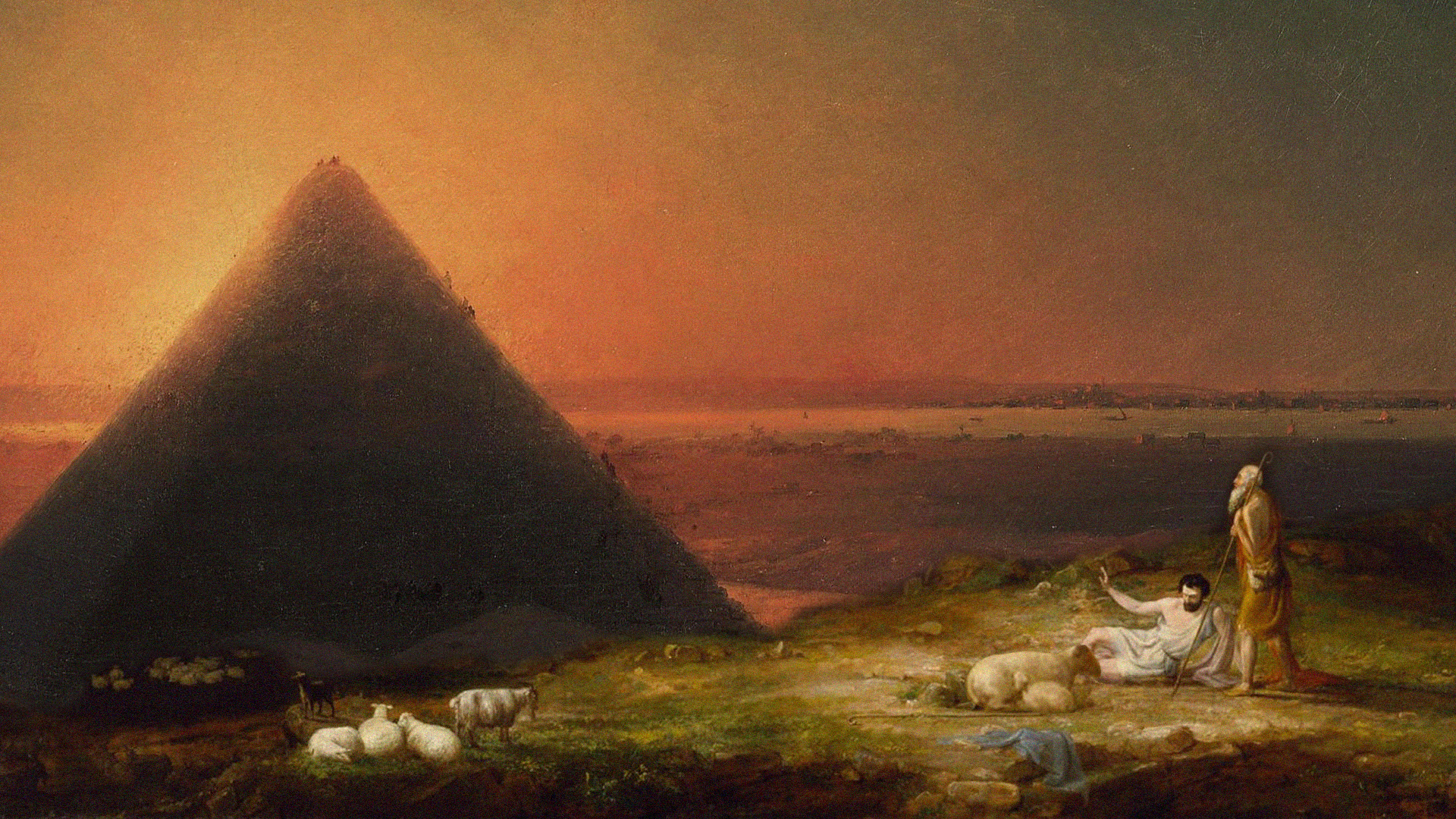Those familiar with the Bible know how to imagine Pharaoh of Exodus: heart-hardened as he heard from Moses and Aaron, “Let my people go.” However, we don’t often think about how some words spoken centuries later may have been even more repulsive to him:
There were shepherds out in the field, keeping watch over their flock by night. And an angel of the Lord appeared to them, and the glory of the Lord shone around them. (Luke 2:8–9, ESV throughout)
Maybe what we need to understand about the Christmas story is how it would have rattled the pyramids.
The Joseph we think about this time of year is Joseph of Nazareth, the adoptive father of our Lord Jesus. But a much earlier Joseph lingers in the background of the familiar scene in Luke 2. In Genesis 46, this Joseph—a key figure in Pharaoh’s court—brought his long-lost, now-found family to Egypt to save them from famine. Joseph told them,
When Pharaoh calls you and says, “What is your occupation?” you shall say, “Your servants have been keepers of livestock from our youth even until now, both we and our fathers,” in order that you may dwell in the land of Goshen. (vv. 33–34)
Joseph seemed to be coaching them to reassure Pharaoh that they were coming not to take over, but merely to carry out their occupations without disrupting Egyptian life. The Bible tells us why: “Every shepherd is an abomination to the Egyptians” (v. 34).
This lowly occupation that was an abomination to the Egyptians becomes a recurring theme in the biblical story. Later, Moses (who, like Joseph, had been an insider in Pharaoh’s court) fled for his life and, before his encounter with God in the burning bush, spent extended time tending flocks (Ex. 3:1). Only after becoming such an abomination to the culture of Egyptian power could Moses become the human captain of God’s deliverance of his people from that empire’s grip.
Then he led out his people like sheep
and guided them in the wilderness like a flock.
He led them in safety, so that they were not afraid,
but the sea overwhelmed their enemies. (Ps. 78:52–53)
And the Davidic throne that the baby Jesus was born to inherit originated not with an aristocrat but with a shepherd (1 Sam. 16:11–13). In fact, the entire promise of salvation and renewal was described by Jesus in just these terms: a good shepherd gathering together a flock (John 10:11–18).
Reflecting on W. H. Auden’s For the Time Being, Alan Jacobs notes that the Magi’s search for the baby born king upsets Herod precisely because they “do not seek to replace him on the throne of his kingdom, but to usher in a wholly new Kingdom.” A shepherd does not lead with coercion and Darwinian strength, but with his voice (John 10:1–5). God’s choice of shepherds to hear the angelic announcement (while Herod had to get the information secondhand from a foreign delegation) only reinforces the character of this new kingdom.
Just as shepherds were seen as an abomination to the early Egyptians, the cross was an abomination to the Romans. Crucifixion was the way Caesar could dominate anyone who could challenge his rule, just as slavery was for Pharaoh of old. Those crucified were to be forgotten; their form of death was the sort of horror from which people would avert their eyes. And yet, “God chose what is low and despised in the world, even things that are not, to bring to nothing things that are” (1 Cor. 1:28).
What lasts far beyond human power is the power those “abominable” shepherds heard about as God’s glory shone around them: “good news of great joy that will be for all the people. For unto you is born this day in the city of David a Savior, who is Christ the Lord” (Luke 2:10–11). What lasts is not the wrappings of mummies but the one who was wrapped in swaddling clothes. Pyramids and colosseums crumble. What the shepherds saw in the manger—that abides. The shepherds knew a better Shepherd’s voice when they heard it, not just in the angels’ song but in a baby’s cry.
Russell Moore is CT’s editor in chief.












